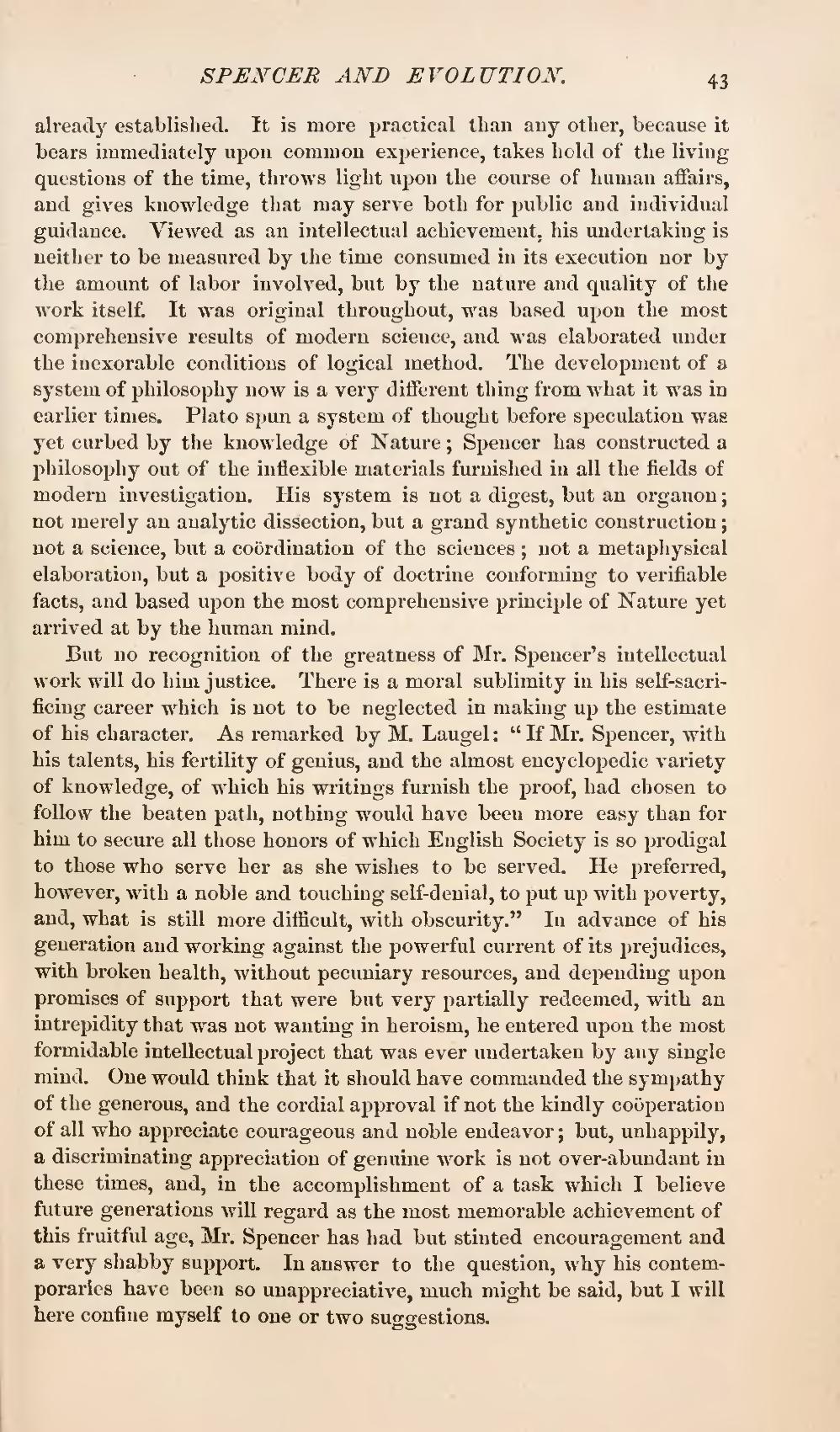already established. It is more practical than any other, because it bears immediately upon common experience, takes hold of the living questions of the time, throws light upon the course of human affairs, and gives knowledge that may serve both for public and individual guidance. Viewed as an intellectual achievement, his undertaking is neither to be measured by the time consumed in its execution nor by the amount of labor involved, but by the nature and quality of the work itself. It was original throughout, was based upon the most comprehensive results of modern science, and was elaborated under the inexorable conditions of logical method. The development of a system of philosophy now is a very different thing from what it was in earlier times. Plato spun a system of thought before speculation was yet curbed by the knowledge of Nature; Spencer has constructed a philosophy out of the inflexible materials furnished in all the fields of modern investigation. His system is not a digest, but an organon; not merely an analytic dissection, but a grand synthetic construction; not a science, but a coordination of the sciences; not a metaphysical elaboration, but a positive body of doctrine conforming to verifiable facts, and based upon the most comprehensive principle of Nature yet arrived at by the human mind.
But no recognition of the greatness of Mr. Spencer's intellectual work will do him justice. There is a moral sublimity in his self-sacrificing career which is not to be neglected in making up the estimate of his character. As remarked by M. Laugel: "If Mr. Spencer, with his talents, his fertility of genius, and the almost encyclopedic variety of knowledge, of which his writings furnish the proof, had chosen to follow the beaten path, nothing would have been more easy than for him to secure all those honors of which English Society is so prodigal to those who serve her as she wishes to be served. He preferred, however, with a noble and touching self-denial, to put up with poverty, and, what is still more difficult, with obscurity." In advance of his generation and working against the powerful current of its prejudices, with broken health, without pecuniary resources, and depending upon promises of support that were but very partially redeemed, with an intrepidity that was not wanting in heroism, he entered upon the most formidable intellectual project that was ever undertaken by any single mind. One would think that it should have commanded the sympathy of the generous, and the cordial approval if not the kindly coöperation of all who appreciate courageous and noble endeavor; but, unhappily, a discriminating appreciation of genuine work is not over-abundant in these times, and, in the accomplishment of a task which I believe future generations will regard as the most memorable achievement of this fruitful age, Mr. Spencer has had but stinted encouragement and a very shabby support. In answer to the question, why his contemporaries have been so unappreciative, much might be said, but I will here confine myself to one or two suggestions.
